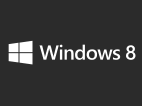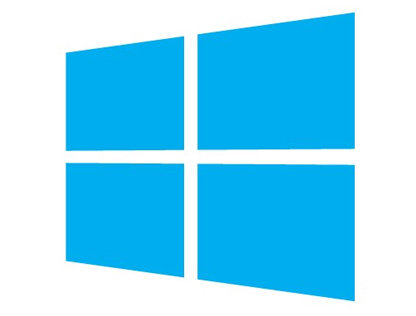Open-source tool for creating multiboot USB drives, supporting various operating systems with persistence and ISO booting, simplifying OS installations and testing.
Uefi RSS
AMD has made one of the minimum system requirements of Windows 11 a necessity for its latest generation of graphics cards.
Rufus, one of the most popular unofficial third-party software used for creating bootable media has been updated today. The new version has improvements related to UEFI, NTFS, ISO, VHDX, GRUB.
The Beta version of Rufus, a popular app for making bootable USB media, was updated to version 4.5. The most notable changes include runtime UEFI media validation, increased buffer size, and more.
Nearly all motherboard makes were found vulnerable to the LogoFAIL security flaw at the end of last year. And at long last, AMD's vendor partners are finally beginning to roll out patched firmware.
Remember the open source Windows project called "ReactOS"? The dev team has published a new blog post outlining all the major developments that happened this year like improved UEFI boot support.
Earlier this month, Pete Batard, creator of the Rufus app, released version 4.2 beta with ZIP64 support and other improvements. After a short testing period, the update is available for all users.
Microsoft has patched UEFI Secure Boot security vulnerability called BlackLotus with its latest Update Tuesday released earlier today. The fix is available on Windows 10, Windows 11, and Servers.
Join us in a jampacked week in a new edition of Microsoft Weekly as we recap all the important stuff from the world of the Redmond tech giant, including the death of Windows 8.1 and a Teams paywall.
The extended support updates (ESU) on Windows 7 ends today. Interestingly and rather bizarrely, Microsoft enabled native UEFI and Secure Boot. However, the new feature support is not without flaws.
Certain Windows PCs with Gigabyte and Asus motherboards have been found to be infected with a new "CosmicStrand" UEFI rootkit. The malware is an evolution of an older rootkit dubbed "Spy Shadow".
Back at CES, Lenovo launched its ThinkPad Z series with Microsoft Pluton powered by Ryzen 6000. However, these new notebooks refuse to run non-Windows OS, like Linux, without firmware tweak.
Firmware security research firm Binarly has revealed that it discovered nearly two dozen vulnerabilities in InsydeH2O UEFI used by several vendors like Microsoft, Intel, Dell, HP, and more.
A newly discovered flaw in Secure Boot affects almost all Linux distros and Windows devices that leverage the UEFI boot tech. If the flow is exploited, attackers can gain full control of the system.
With virtual computing solutions targeting a variety of workloads such as enterprise applications, visualization, and machine learning, Microsoft has announced updates to its Azure VM solutions.
Microsoft wants firmware development to follow the Firmware as a Service (FaaS) model. It has announced an open-source release of Project Mu, which allows UEFI development in a modular manner.
Security researchers at ESET have discovered what they claim to be the first UEFI rootkit being used in the wild, allowing hackers to write persistent malware into the target computers.
Microsoft has rolled out a bunch of driver updates for its newest Surface devices - but as has become common practice for the company these days, it hasn't yet published any details about them.
Old Intel code still present in UEFI firmware used by many machines has left devices open to attacks. Lenovo admits that the Secure Boot-disabling vulnerability's scope of impact is industry wide.
Macs might seem like a safer alternative than PCs when it comes to digital attacks. But researchers have proven that's not actually the case when they created a firmware worm that infects Macs.
Create, delete, edit, clean up, backup and restore EFI/UEFI boot options, specifies a one-time boot entry for the next restart, or change the EFI/UEFI boot order without entering BIOS setup.
Microsoft has shifted responsibility to OEMs to decide whether to implement Secure Boot on new PCs, allowing them to lock out Linux and other alternative operating systems.
Researchers showed off how they were able to bypass the Secure Boot system in Windows 8 in two separate exploits at the Black Hat conference last week in Las Vegas.
Microsoft's latest firmware update for its Surface Pro and Surface RT tablets have been released, which offer some WiFi improvements for the Pro version and speaker upgrades for the RT tablet.
A Linux community association has complained to the EU against Microsoft, claiming UEFI Secure Boot is an anti-competitive "obstruction mechanism" to booting other operating systems on Windows 8 PCs.
Microsoft is hiring for a new and "confidential" Windows Phone technology product that somehow involves the operating system's Unified Extensible Firmware Interface.
Italian researchers have developed a new bootkit capable of infecting the UEFI platform and hijacking the Windows 8 kernel. It's now easier to create such nasty things, the researchers say.
Canonical has revealed how it will offer a way for users to launch its Ubuntu Linux OS on Windows 8-base x86 PCs with Microsoft's rules for the Secure Boot system.
Linus Torvalds, the creator of the Linux OS, has offered some opinions on Windows 8 and its UEFI security measures, saying that a solution to dual boot to Linux via Red Hat is a good compromise.
A discovery in Microsoft's Windows 8 hardware certification requirements may indicate that ARM-based Windows 8 devices may not be able to dual boot other operating systems like Linux.
Microsoft's latest update to "Building Windows 8" describes the security aspects of the OS's UEFI support, of which concerns were raised recently.
















_medium.jpg)



























